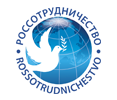STATEMENT BY MR. ANDREY V.KOVALENKO, REPRESENTATIVE OF THE RUSSIAN FEDERATION IN THE FIFTH COMMITTEE OF THE 57TH SESSION OF THE UNGA ON AGENDA ITEM 121 "UN PENSION SYSTEM" 11 NOVEMBER 2002
The Russian delegation would like to express its gratitude to the Chairman of the United Nations Joint Staff Pension Board Dr. J. Lariviere for presenting the UNJSPF Board report, Director of the Investment Management Service H.Ouma for presenting the Secretary-General's report on investments of the UN Pension Fund and H.E. Mr. Mselle for presenting the ACABQ report on UN Pension System.
Let me touch upon some issues within this agenda item, which arise in connection with the discussion of the above-mentioned reports.
The Russian delegation takes note of the significant reduction in the actuarial surplus of the Pension Fund (from 4.25 to 2.92 per cent of pensionable remuneration) compared to the previous actuarial valuation of the Fund in December, 1999. Taking into account the present situation and the view expressed by the Committee of Actuaries on the necessity of cautious approach to the use of actuarial surplus, the Russian delegation completely agrees with the ACABQ, which reminds us of UNGA resolution 53/210 of December 18, 1998 which stresses, in particular, that parameters of the existing pension scheme should not be changed unless there is tendency showing a stable actuarial surplus. As known, unjustified decisions on liberalisation of the ension system without steady actuarial surplus, resulted in actuarial deficit and increased expenses under the pension scheme.
Therefore, we do not object, in principle, to the measures proposed by the Board (para. 11 (a) of the Report) and aimed at certain liberalization of the pension system, but we suggest to review them after consideration of results of the next actuarial evaluation of the Pension Fund in 2003.
On the whole, the Russian delegation shares the concerns expressed by the Board over a major decrease in the market value of the assets in the period covered by the Report and continuation of this negative trend during 2002.
At the same time, we would like to commend the success achieved by the Investment Management Service that was able to somehow minimize losses and attain to good results compared to its benchmark (composed of Morgan Stanley Capital International World Index and Salomon Brothers World Government Bond Index) against the background of slumping world financial markets.
Russian delegation supports the views, expressed by the ACABQ on the need to separate responsibilities of the Board, Secretary-General, Investments Committee, and Fund's leadership with regard to investments.
We feel somewhat concerned about the emerging problems between the Fund and OIOS regarding and audit of the Fund's activities. We believe that there should be no rush in this issue, which should be addressed at the negotiating table, taking into account the existing UN internal audit system. We share the approach taken by the ACABQ towards this question.
As to the proposed new transfer agreements of the Pension Fund, in particular with the OSCE, we would like to see more details about the terms of the last agreement.
Referring to the activities of the Board relating to former Joint Staff Pension Fund's participants from the former Soviet Union, the Russian delegation would like to state the following.
We take note of the Pension Board's decision that rules out the possibility of utilizing the Fund's resources to supplement pensions of the former Soviet participants in the Fund.
Russia is also of the view, that, following the removal of the issue of the draft agreement between the UNJSPF and the Government of the Russian Federation on partial reinstatement of the pension rights of the former Soviet employees of international organizations in the UN Pension Fund from the agenda, this problem is to be settled internally.
The Russian delegation would like to underline the fact, that all issues related to the pensions of the Russian citizens who worked in international organizations of the UN system, including "adequacy" of supplements to the regular pensions established for this category of pensioners, are resolved in accordance with the effective Russian legislation and taking into account specificity of the Russian pension system (which was, until recently, funded only from the budget and was quite different from UN system), the overall size of pensions and the financial condition of the State.
Some disputes arising in this area and claims directed to the Government by the former UN Joint Staff Pension Fund's participants are settled through ordinary court proceedings.
The Russian side has already informed the leadership of the Fund and the UN Secretariat that the Government of the Russian Federation introduced supplements to pensions for those Russian citizens who had transferred their pension rights under the Agreement concluded between the UN Joint Staff Pension Fund and the Government of the USSR in 1980. Currently, the Government is exploring the possibility to take additional measures to enhance provision of pensions for the former employees of international organizations.
We are grateful to the leadership of the UN Pension Fund and the UN Secretariat for assistance provided to the Russian side in addressing technical issues arising in this area.
Thank you for your attention.
